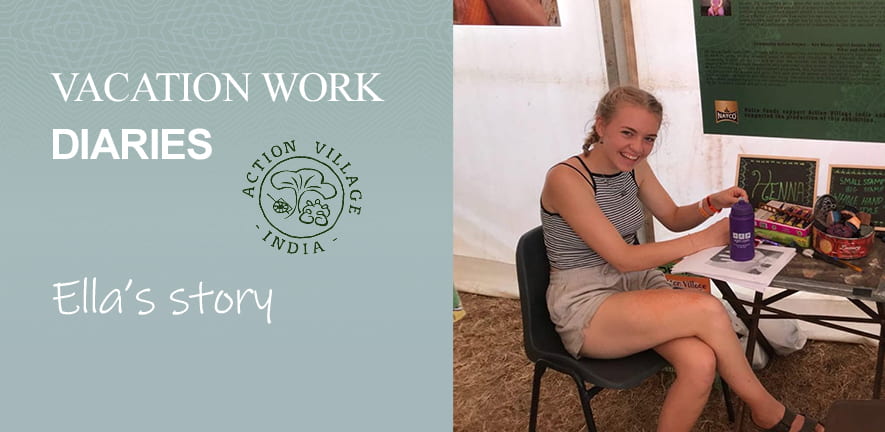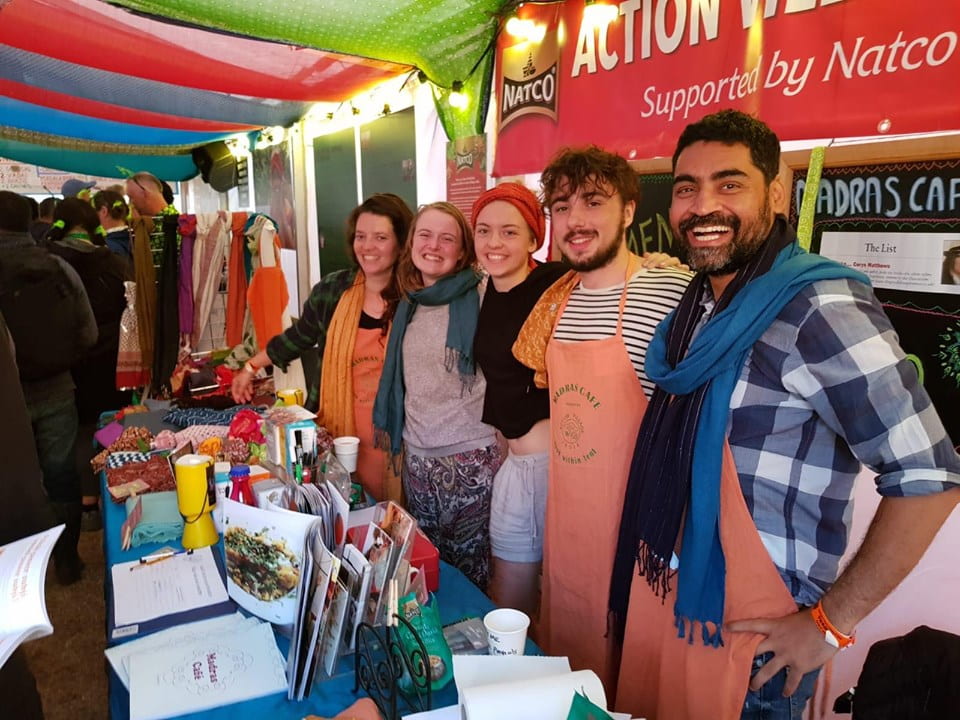
Ella Shaxson, a HSPS finalist from Girton College, reveals all regarding her voluntary internship placement with Action Village India
In the summer after my first year at Cambridge, I completed a six-week voluntary internship placement with Action Village India (AVI), which is a small London-based charity that works to promote economic and social development in India. They have six Indian partner organisations, and work mainly for women’s empowerment, the rights and employment of disabled people, and land rights. My role while interning with AVI was to conduct research into ethically- and sustainably-made Indian products which AVI was planning to sell in the UK as part of a small social enterprise arm. This would generate income that can be fed back into its charitable projects. Since it is becoming increasingly hard to secure funding for UK charities working in India, AVI is looking for alternative sources of funding.
Top responsibilities
My overall objective was to create a catalogue of items that AVI could sell in the UK. The products I selected had to be high quality and durable, made by Indian producers whose livelihoods needed supporting or were under threat, and made from ethical and sustainable materials. I had to ensure that the supply chain could be checked to prevent human or environmental exploitation, and that the producers would be paid a fair price, and work in good conditions. Two days a week, I would arrive at AVI’s London office at about 10am and leave around 5pm. I mainly conducted online research and made spreadsheets with important information, as well as mood boards and look-books to formulate a coherent brand for the product range.
attending WOMAD was an amazing way to talk to people about AVI’s message and intentions
Market research
Once I had done the initial research, I then organised two focus groups, one of AVI staff and interns, and one of family friends. The purpose of these focus groups was to get an idea of what people thought of the product range, and whether the products seemed to fit with AVI’s vision and goals. It was also to see what people would be happy to pay for each product. I recorded both these focus groups and typed up the feedback I received, altering the product catalogue accordingly. The next step was to consider sourcing products from India. AVI already had two contacts that I was able to communicate with. The first had a friend in India who had designed and was hand-making baskets made from local reeds, recycled string and plastic bags she found littering her village. The second contact was a man who was sourcing sustainably-made yoga mat bags, yoga shawls and cotton bags to be sold by AVI. He sent us samples of these products, and we had an opportunity to see how they sold.

without the bursary I would have been unable to afford to travel into London every day, so this is a vital resource for students undertaking unpaid internships
Fundraising
At the end of the six weeks, I volunteered along with the other AVI staff and interns at an Indian food tent named the Madras Café at WOMAD world music festival. Madras Café is completely run by volunteers, and raises thousands of pounds for AVI every year. AVI has a desk where they sell products, collect donations, do henna, enable people to sign up to the newsletter, and talk to people about where the profits of Madras Café go. As well as a chance to get customer feedback on the yoga products we were selling, attending WOMAD was an amazing way to talk to people about AVI’s message and intentions, recruit supporters and it was a lovely way to finish my internship with AVI.
My highlights
The most interesting part of my placement was learning new research skills, gaining knowledge on sustainable and ethical supply chains, learning how to organise and facilitate focus groups, and enjoying the wonderful atmosphere at Madras Café. I am very grateful for the opportunity provided to me by AVI, Cambridge Hub and the Summer Bursary provided to me by the Careers Service – without the bursary I would have been unable to afford to travel into London every day, so this is a vital resource for students undertaking unpaid internships. It is the unfortunate reality that many charities cannot afford to pay interns but also rely on their help to make the biggest impact they can.
Career goals
My plan for the future is to work in reducing socio-economic inequality in the UK, specifically in gender, housing and education.
